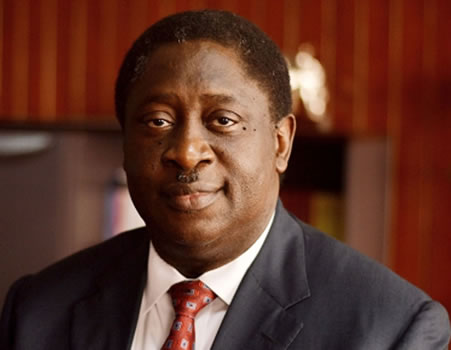The pro-chancellor and chairman of the governing council of the University of Lagos, Dr. Wale Babalakin, has stressed the need for the revitalisation of Nigeria’s education sector, saying it is critical to wealth creation and the sustenance of the Nigerian economy.
Dr. Babalakin made the call Tuesday last week in his opening remarks at the University of Ilorin’s third annual registry lecture series, where he made a passionate case for the injection of huge capital into the education and health sectors of the country.
Citing UNILORIN as an example, the Babalakin who was the chairman of the occasion explained that the institution would require a minimum of N60 billion yearly to provide quality education for its 50,000 students population, but noted that the university is currently struggling to have access to N12 billion a year.
Babalakin, who is the leader of the 14-member federal government team negotiating the 2009 agreement with the Academic Staff Union of Universities (ASUU), warned that the revitalization of the Nigerian universities cannot be delayed further, and called on all the stakeholders to join hands to seek alternative means of generating the needed funds to drive the nation’s education sector.
In his address, the vice chancellor of the University of Ilorin, Professor Sulyman Age Abdulkareem, who was represented on the occasion by the deputy vice chancellor (Academics), Professor (Mrs.) S. O. Malomo, said the occasion was a laudable initiative of the non-teaching staff, whom he described as the best crop of non-teaching staff in the entire Nigerian university system.
Professor Abdulkareem pledged the continuous support of the management to the registry in-house training programmes, adding that “the training has been enhancing effective service delivery that is significantly aiding the achievement of our mission”.
The Head of the Civil Service of the Federation, Mrs. Winifred Ekanem Oyo-Ita, while delivering the registry lecture charged Nigerian universities to urgently adopt the current 2017-2020 Federal Civil Service Strategy and Implementation Plan as a pragmatic tool for re-engineering university administration for excellence.
Delivering the lecture entitled ‘Public Service Rules and University Administration: Re-Engineering for Excellence’, Mrs Oyo-Ita, who spoke through the director, Organization Design and Development, office of the Head of Service of the Federation, Mr. Ben Omogo, said the universities’ conditions of service must be subjected to regular review in tandem with new trends and challenges in the day-to-day administration of universities.
She said, “University administration, with the registrar at the centre, can be re-engineered for excellence through the adoption of reforms, strategies and policy framework in consonance with international best practices.”
To fully understand the problems of accountability, unethical practice and conditions of service of university staff, Mrs Oyo-Ita said “we need to have a clear sense of history, a history that links the past and the present, with a view to formulating useful policies and strategies that will move Nigerian universities to the next level of development.”






